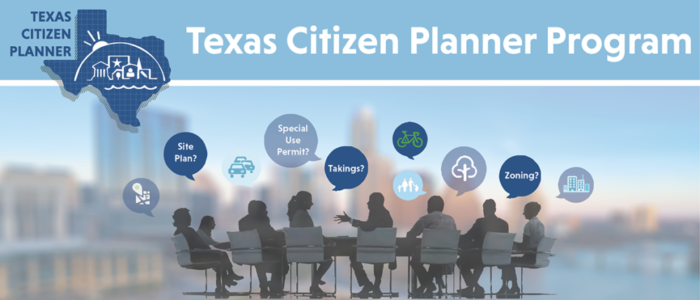Michael Babin
Education/Oversight Specialist, Windstorm Inspection Program, Texas Department of Insurance
Mr. Michael Babin co-led “A Better Understanding of Insurance Coverage, Rebuilding Standards and How to Detect Potential Fraud” presentation with a focus on windstorm inspections during the Community Planning for Hazards Course in 2019.
Michael Babin has worked for the Texas Department Of Insurance Windstorm Inspection Group for almost 26 years. His main function is Education and Outreach on the inspection process, approving products, and the importance of receiving the certificate of compliance after you complete an improvement. Michael also assists the Texas Department of Insurance engineering staff in Austin with the oversight program on appointed Qualified inspectors.
Michael F. Bloom, P.E., ENV SP, BCEE, CFM
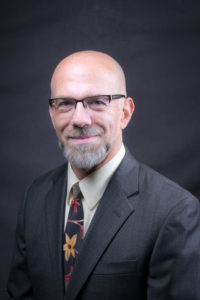
Sustainability Practice Manager, R. G. Miller Engineers, Inc.
Mr. Michael F. Bloom presented “Hurricane Harvey”, “An Introduction to Stormwater Ordinance Writing: Examples from the Field”, and “How to Develop Sustainably Using Green Stormwater Infrastructure” during the Flooding and Stormwater Specialty Course in 2017.
Michael Bloom designs natural drainage systems that increase operating income, reduce detention requirements, increase developable land, and provide amenity values. He recently served as an expert reviewer of the recently released ULI report Harvesting the Value of Water: Stormwater, Green Infrastructure, and Real Estate (April 2017).
Michael is an Envision Sustainability Professional, a Certified Floodplain Manager, and a Board Certified Environmental Engineer. Mr. Bloom serves on the Steering Committee of the Houston Land and Water Sustainability Forum, serves as Vice-Chair of the Government Affairs Committee of the Water Environment Association of Texas, and is a member of the Board of Directors of the Bayou Preservation Association. He has a Bachelor of Science degree in Mechanical Engineering from Syracuse University and a Master of Science degree in Environmental Engineering from Drexel University.
Mr. Bloom’s online profile is available here.
Katie Coyne, AICP, Certified Ecologist – Ecological Society of America, SITES AP

Urban Ecologist, Asakura Robinson
Ms. Katie Coyne presented “Collective Impact for Resilient Cities: How innovation in planning and design can help cities accomplish more” during the Community Planning for Hazards Course in 2019; she presented “Green Infrastructure Needs Planners: How Planners Should by Pushing the Resiliency Agenda in Theory and Practice” during the Flooding and Stormwater Specialty Course in 2017.
Katie leads the Urban Ecology Studio at Asakura Robinson where she works on planning and design projects specifically targeting increased resiliency from urban to rural areas, restoring ecosystem function on small-sites and across regions, conserving open space and facilitating sustainable public access, leveraging the protection of natural resources toward equity goals, and using data and research to drive the design of multi-functional green infrastructure sites and networks. Katie’s traditional training in ecology allows her to understand the ecological imperative and technical nuances in the Urban Ecology Studio’s work while her training in community planning and design has armed her with the tools to understand how economic, cultural, social, and ecological goals must be balanced across scales for a resilient future.
Over the last ten years, Katie has worked as an ecologist on landscape, aquatic, coastal, and marine ecology applied research; as an environmental advocate working with rural communities abroad; as an environmental educator in both traditional and non-traditional classrooms; and as an urban planner and ecological designer with project work throughout the country. She is passionate about studying the overlap of social and ecological issues and her work aims to create better connections between people and the ecological systems around them. Katie holds a Bachelor of Science in Ecology from the University of Florida and dual Master’s of Science degrees at the University of Texas at Austin in Community and Regional Planning and Sustainable Design.
In Katie’s free time she serves on the City of Austin Environmental Commission, City of Austin Joint Sustainability Committee, The Trail Foundation Ecological Restoration Committee, and on the Board of Directors for Equality Texas, the state’s largest LGBTQ lobbying and advocacy organization dedicated to ensuring equality for ALL Texans (#yallmeansall).
Katie’s online profile is available here.
Matthew J. Festa, JD

Professor of Law, South Texas College of Law Houston
Professor Festa presented “Legal Foundations of Community Planning” during the Community Planning for Hazards Course in 2019. He led Class 2: Legal Foundations of Community Planning during the Foundations Course in 2017 and co-led Class 3: Local Officials’ Roles & Responsibilities of the Foundations Course in 2013. He also led Class 6: Green Infrastructure, Development, and Planning Toolsand co-led Class 3: Local Officials’ Roles and Responsibilities of the Foundations Course in 2013.
Matt Festa teaches and researches in the areas of property law and land use, state & local government, and energy & environmental law. His scholarship focuses on the relation between property rights and public control in land use planning and government regulation; on the role of property rights in constitutional law and history; and on property and the rule of law in contemporary international affairs. Matt Festa is a fellow at the Rice University Kinder Institute for Urban Research, one of the nation’s leading think thanks on local government issues. Professor Festa joined the South Texas faculty in 2007, after serving as a visiting assistant professor at the University of Georgia School of Law.
For Prof. Festa’s online profile, click here.
Rose M.Z. Gowen
Councilwoman, City of Brownsville
Councilwoman Gowen co-led Course 8, Placemaking and Redevelopment of the Foundations Course in 2013.
The councilwoman has been a critical leader in several planning and redevelopment initiatives in the City of Brownsville, ranging from farmer’s markets to streetscape and neighborhood improvements. She will be sharing her experience as a local official engaged in local planning and development within and between City departments and agencies.
Dustin Henry
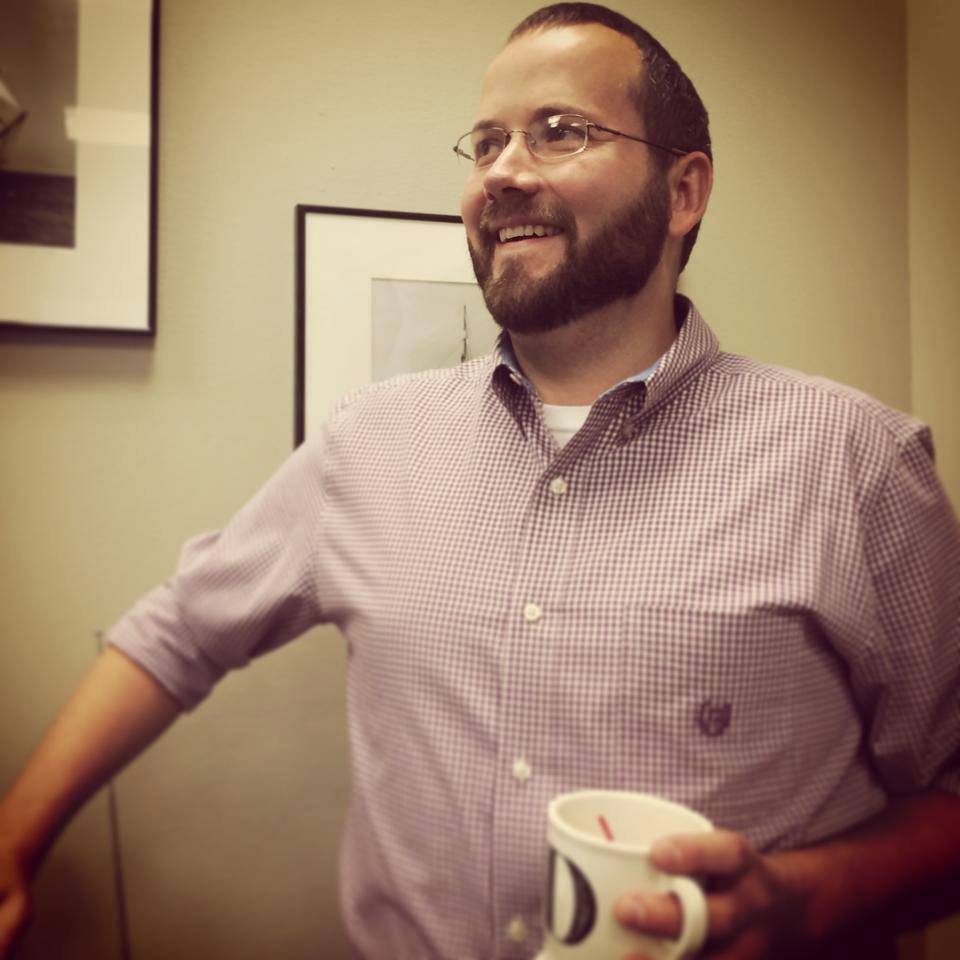
Dustin Henry, AICP is Coastal Resources Manager for the City of Galveston.
Mr. Dustin Henry co-led Course 4, Plan Implementation and Development Review during the Foundations Course in 2013.
Dustin serves as the lead of the Coastal Resource Management team for the City of Galveston, responsible for developing and administering current and long-range planning programs related to the community’s coastal resources, including shoreline protection, erosion response and mitigation, public beach accessibility, and protection of natural resources. Henry’s first introduction to Galveston came shortly after Hurricane Ike made landfall in 2008. As a first semester urban planning graduate student, he was invited to participate as a research associate in a multi-year study of household and business recovery in the Galveston area following the storm. Since graduating, he has called the island community home.
Fouad Jaber, Ph.D., P.E.

Associate Professor and Integrated Water Resources Management Extension Specialist, Texas A&M AgriLife Extension
Dr. Fouad Jaber presented “Stormwater Green Infrastructure: Evaluation, Performance and Modeling” during the Flooding and Stormwater Specialty Course in 2017.
Dr. Jaber received his Ph.D. in Agricultural and Biological Engineering from Purdue University with emphasis in Natural and Environmental Resources Engineering. He has been conducting research and extension programs related to stormwater management, stream restoration, non-point source pollution management from the urban environment and water quality studies since 2002. Dr. Jaber is a registered Professional Engineer in the State of Texas and an Accredited Professional of the American Rainwater Catchment Systems Association (ARCSA). Dr. Jaber’s online profile is available here.
David Jackson, CEM

State Hazard Mitigation Officer, Mitigation Section Administrator, Texas Division of Emergency Management, Texas Department of Public Safety
Mr. Dave Jackson presented “Planning for Community Resilience through Hazard Mitigation” during the Community Planning for Hazards Course in 2019.
Dave Jackson is the State Hazard Mitigation Officer for the Texas Division of Emergency Management. He is responsible for the management and operations of TDEM’s hazard mitigation activities which include mitigation planning and mitigation grants programs.
Prior to joining TDEM, Dave’s experience includes working the critical infrastructure protection mission with the TXJCIC, and fifteen years with the State of Idaho in various assignments to include emergency planner, EOC Plans Section Chief, State Training & Exercise Officer, and State Hazard Mitigation Officer. Dave holds a B.S. in Emergency Administration and Disaster Planning from the University of North Texas and a M.A. in Homeland Security Studies from the Naval Postgraduate School.
Dr. John Jacob

Director, Texas Community Watershed Partners
Professor and Extension Specialist, Department of Recreation, Park and Tourism Science, Texas A&M AgriLife Extension Service
Dr. Jacob presented “Resilience and the Nature of Place” during the Hazard Mitigation and Plan Integration Specialty Course in 2017 and co-led Course 8, Placemaking and Redevelopment during the Foundations Course in 2013.
John is a recognized expert on Texas wetlands and coastal habitats. He now focuses his professional work on highlighting the benefits of placemaking and natural resource conservation as a framework for town planning and hazard mitigation. Most recently, he and his staff developed the CHARM model, a GIS-based user-friendly model that enables users to develop growth scenarios and to see in real time the impact of development scenarios on safety, economics, and natural resources.
For his online profile, click here.
Douglas Klopfenstein

Education and Oversight Specialist, Regulatory Policy Division/Windstorm Inspection Program, Texas Department of Insurance
Mr. Douglas Klopfenstein co-led “A Better Understanding of Insurance Coverage, Rebuilding Standards and How to Detect Potential Fraud” presentation with a focus on windstorm inspections during the Community Planning for Hazards Course in 2019.
Douglas (Doug) Klopfenstein works as a Program Specialist for the Texas Department of Insurance, Windstorm Inspection Program. He has is a certified Coastal Construction Inspector and a certified Commercial Building Inspector through the International Code Council (ICC). He has approximately 13 years of experience in residential construction in the state of Texas, over 24 years of experience in the Windstorm Inspections Program of Texas Department of Insurance, 3 years of experience serving on the ICC Coastal Construction and Disaster Response Exam Development Committees, and over 7 years of experience in Windstorm educational services for the Department and Oversight Inspections.
Matt Lewis, CNU-A

President, SimplecityDesign, llc
National Board of Directors, Congress of New Urbanism
Matt Lewis led Class 4: Building Communities – From Vision to Policy for the Foundations Course in 2017 and Class 5: Public Participation for the Foundations Course in 2013.
Matt Lewis is a geographer, city designer and development policy expert. Matt has extraordinary ability to create nimble, lovely and simple solutions for complex city issues. Before launching Simplecity design, Matt led the planning and development services departments in the three fastest growing communities in the nation. From 2004-2016 his leadership guided exploding growth into positive changes in Hutto, San Marcos and Austin, Texas. Matt earned a degree in Geography with an emphasis on Urban & Regional Planning from Texas State University in 2003. Matt’s approach to redefining our communities has received national awards and recognition. He now travels across the world assisting communities in creating places people love.
For Lewis’ online profile click here.
Jaimie Hicks Masterson, AICP, LEED GA

Associate Director, Texas Target Communities, Department of Landscape Architecture and Urban Planning, Texas A&M University
Jaimie Hicks Masterson led Class 6: Hazard Mitigation and Planning for Resilient Communities for the Foundations Course in 2017.
Mrs. Masterson is the Associate Director of Texas Target Communities, a high-impact service learning program that works alongside underserved communities to plan for future resilience. She is author of Planning for Community Resilience: A Handbook for Reducing Vulnerabilities to Disasters, which focuses on hazard mitigation strategies and tools for government officials, planners, and emergency managers that can be incorporated pre-disaster. She is the engagement coordinator for the Plan Integration for Resilience project funded by the Department of Homeland Security and part of the Center for Coastal Resilience at the University of North Carolina at Chapel Hill. Masterson also consults with small communities to develop comprehensive plans, economic development plans, and other planning needs where resilience practices are folded and infused into plans and other community initiatives. Additionally, Masterson authored the Rapid Disaster Recovery Housing Program Report (RAPIDO) which identifies disaster recovery policy recommendations, a technical guide for program implementation, and a program comparison of current disaster recover challenges and successes. The RAPIDO program focuses on pre-disaster and post-disaster planning strategies for local jurisdictions and social service organizations.
For Masterson’s online profile click here.
Kimberley Mickelson, AICP, JD

Attorney, Olson & Olson
Kim Mickelson led Class 3: Legal Foundations of Community Planning, II for the Foundations Course in 2017 and co-led Classes 2 and 3: the Legal Foundations of Planning, and Local Officials’ Roles & Responsibilities for the Foundations Course in 2013.
Mickelson is an attorney and certified planner whose practice is concentrated in the representation of governmental and non-profit corporations. Ms. Mickelson practices land use and historic preservation law, economic development, airport law, special districts, cemetery, and non-profit corporation law.
For Mickelson’s online profile click here.
Gary Mitchell, AICP
Vice President, Kendig Keast Collaborative
Mr. Gary Mitchell co-led Course 4, Plan Implementation and Development Review during the Foundations Course in 2013.
Gary Mitchell has 22 years of planning experience at the city, county and regional levels. Over his career, Gary has completed a wide variety of plans and special studies addressing: land use, transportation, growth management and annexation, housing, economic development, infrastructure, community facilities, public services, bicycle/pedestrian circulation, parking, downtowns, neighborhoods, special districts, environmental and cultural resources, park systems and trail networks, historic preservation, urban design, and transit planning.
For Gary’s online profile, click here.
Earthea Nance, Ph.D., PE, CFM

Associate Professor, Dept. of Urban Planning & Environmental Policy, Texas Southern University
Dr. Earthea Nance presented “Tools and Strategies for Hazard Planning” during the Community Planning for Hazards Course in 2019.
Dr. Nance has been a registered professional civil engineer for 22 years and a certified floodplain manager for 10 years. She specializes in environmental hazards and water management in complex social settings, such as in vulnerable communities. Her most recent publications are Development Regulations (coauthored,2019), Strategies for Flood Mitigation in Greater Houston 2 (contributing author, 2019), and KAPS: A Disaster Training Approach for High-Risk Communities(co-author, forthcoming).
Dr. Nance directed the offices of hazard mitigation and environmental planning for the City of New Orleans after Hurricane Katrina, which under her direction produced the city’s first sustainability action plan, its first FEMA-approved hazard mitigation plan, its first carbon report, and its first citizen guide to soil remediation. She presently serves on the Greater Houston Flood Mitigation Consortium and the City of Houston’s Climate Action Advisory Board. Her past public service includes advising the Water Institute of the Gulf, the EPA Science Advisory Board, the EPA Board of Scientific Counselors, and the National Environmental Justice Advisory Council. Earthea teaches a variety of environmental courses and has mentored dozens of graduate students. Prior to joining Texas Southern University, she served on the urban planning faculty at the University of New Orleans, Massachusetts Institute of Technology, and Virginia Tech. Professor Nance received her doctorate degree from Stanford University.
Visit Earthea’s online profile or access her Google Scholar webpage.
Wayne Neumann, AICP
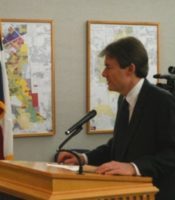
Owner, Municipal Planning Services
Wayne Neumann led Class 5: Plan Implementation and Development Review for the Foundations Course in 2017.
Mr. Neumann has worked at the municipal government level for over 30 years and has written and implemented zoning and subdivision ordinances, comprehensive plans as well as land use plans, urban design plans, and hike and bike trail plans. He has developed and implemented architectural standards for non-residential buildings and has supervised a planning department of 32 employees. He has helped numerous cities in the Houston area as well as the City of Corpus Christi solve planning problems through his consulting firm Municipal Planning Services.
For Neumann’s online profile click here.
Dr. Walter Gillis Peacock

Professor, Department of Landscape Architecture and Urban Planning and the Sustainable Coastal Margins Program, Texas A&M University
Director, Hazard Reduction and Recovery Center
Dr. Walter Peacock presented “Planning for Hazard Resilience: Mitigation Planning, Mitigation Policies, and Assessing Planning Integration” during the Hazard Mitigation and Plan Integration Specialty Course in 2017. He also led Class 7: Coastal Hazards and Planning for Resilient Communities during the Foundations Course in 2013.
His research explores the socio-economic impacts of natural hazards and land use changes in coastal communities. His studies have addressed mitigation, vulnerabilities, and decision-making in the post-disaster context for major coastal urban communities. His professional interests cover urban planning, natural hazards, hazard mitigation, long-term disaster recovery, and quantitative methods. For Dr. Peacock’s online profile, click here.
Margaret Robinson, PLA, LEED AP, ASLA

Principal, Asakura Robinson
Ms. Margaret Robinson presented “A Matter of Scale: Case studies in Green Stormwater Infrastructure at site, neighborhood and district scales” during the Flooding and Stormwater Specialty Course in 2017.
Margaret Robinson holds over 30 years of planning, urban design and landscape architecture experience in Texas, California, and abroad. Ms. Robinson’s particular expertise is in parks master planning, green infrastructure, and complete streetscapes. As an expert and advocate of sustainable design, Ms. Robinson obtained her LEED Accredited Professional credential in 2006 and has engaged sustainable design in all aspects of her work. She and her firm have an unparalleled, gulf coast regional experience with sustainable landscape architecture that employs green infrastructure techniques including bioswales, bio-infiltration, rain gardens, green roofs, rainwater harvesting, green walls and hi-efficiency irrigation systems. Margaret’s signature projects include award winning Mandell Park, Gene Green Park and Bagby Street’s green infrastructure planting and irrigation. Margaret is a founding member of the Texas Land/Water Sustainability Forum created in 2008 to advocate LID and green infrastructure in the state. Margaret speaks frequently on this topic to local, regional and national audiences.
Ms. Robinson’s online profile is available here.
Lt. David Taylor

Texas Department of Insurance Fraud Unit, assigned as a Lieutenant to the North Texas area and a charter member of the Fraud Catastrophe Response Team; unit firearms and defensive tactics instructor and field training officer
Lt. David Taylor co-led “A Better Understanding of Insurance Coverage, Rebuilding Standards and How to Detect Potential Fraud” presentation with a focus on fraud awareness during the Community Planning for Hazards Course in 2019.
Prior to joining the unit, Lt. David Taylor was a Police Officer with the Rockwall Police Department, working in patrol. He was an instructor and member of the crime scene team in Rockwall. Prior to returning to Law Enforcement, Lt. David Taylor spent seven years as a Special Investigator with GEICO Insurance, working auto-related insurance fraud. Before Lt. David Taylor moved to the United States, he spent 6 years as a Police Officer with Northumbria Police as a Police trainer and member of various task forces.
Aarin Teague, Ph.D., P.E.

Senior Engineer, San Antonio River Authority
Ms. Aarin Teague presented “Planning a Stormwater Management Strategy in Your Community” during the Flooding and Stormwater Specialty Course in 2017.
Aarin Teague received her bachelor’s and master’s degrees in biological and agricultural engineering from Texas A&M University. Teague continued her education and received her doctorate in civil and environmental engineering from Rice University in 2011. Prior to joining SARA in 2012, Teague worked for the Gulf Ecology Div. of the U.S. Environmental Protection Agency Office of Research and Development. While at SARA, Teague has managed the creation of a LID Technical design manual and is currently leading efforts to implement its second edition. She has managed projects constructing best management practices at SARA properties and is currently managing the design and construction of neighborhood BMPs and stream restoration as part of a 319 grant. In addition to providing technical support to the development of the Upper and Lower San Antonio River Watershed Implementation Plans she has lead a multi-agency team to conduct multi-hazard tournaments to educate and support planning for community risk management.
Dr. Teague’s online profile is available here.
Manuel D. Villarreal

Texas Windstorm Insurance Association Ombudsman
Mr. Manuel Villarreal co-led “A Better Understanding of Insurance Coverage, Rebuilding Standards and How to Detect Potential Fraud” presentation with a focus on types of coverage during the Community Planning for Hazards Course in 2019.
Manuel has worked at the Texas Department of Insurance since 1994 in various capacities including investigating, evaluating, and resolving complaints against property and casualty companies. He is also a member of the TDI Disaster Team that conducts public education presentations to civic and professional organizations. As the agency’s Texas Windstorm Insurance Association (TWIA)ombudsman, Manuel meets with city, county, and state officials; community and organization representatives; homeowners; and business owners in the 14 coastal counties and parts of Harris County along the Texas coast to help them learn about their rights as TWIA policyholders and learn about the TWIA claims process.
Jamie Rae Walker, Ph.D.

Assistant Professor and Extension Specialist, Department of Recreation, Park and Tourism Sciences, Texas A&M AgriLife Extension Service
Dr. Jamie Rae Walker presented “Parks can be playful and pragmatic” during the Hazard Mitigation and Plan Integration Specialty Course in 2017.
Most of Dr. Jamie Rae Walker’s work focuses on providing educational sessions, hands on trainings, and technical assistance for communities needing to conduct citizen input sessions, systematic survey and counties methodologies, and effective planning and prioritization processes for parks and related open spaces.
Jamie Rae has worked directly on funded projects with eleven communities to implement evidence planning processes (e.g., citizen input, systematic program and land use analysis, asset mapping, feasibility studies, etc.) to improve programming and infrastructure. Collectively, this has resulted in the development and installation of seven school trails; one community trail; six park enhancement projects such as lighting, park cleanup efforts, improved maintenance, and increased safety patrol; two community built playgrounds; one fitness station area; wayfinding and trail signage for five community paths; one community pool; four park master plan updates; and one assessment for park department national accreditation. These accomplishments have increased community economies, addressed resident retention and attraction issues, increased access to physical activity opportunities, and improved community health.
Jamie Rae’s online profile is available here.
Shannon S. Van Zandt, Ph.D., AICP
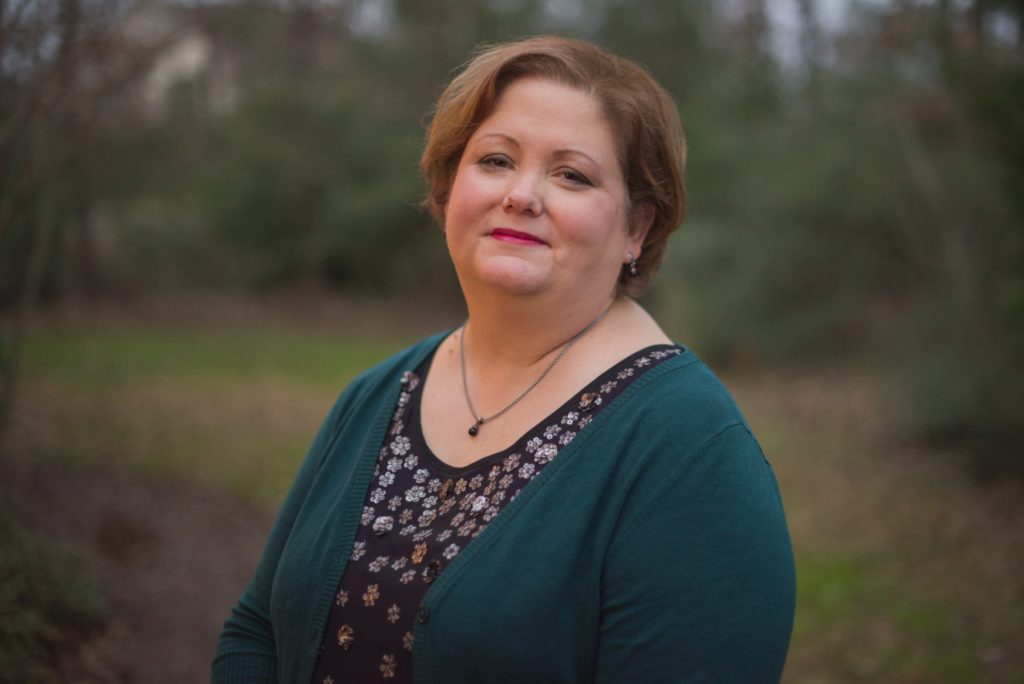
Professor and Department Head, Department of Landscape Architecture & Urban Planning, Texas A&M University
Nicole & Kevin Youngblood Professor of Residential Land Development
Dr. Van Zandt led Class 1: Introduction to Planning 101 for the Foundations Course in 2017 and Class 1: Planning & Community-Building for the Foundations Course in 2013.
Her areas of interest include housing policy, sustainable community development, and social vulnerability following disasters. Her research examines ways to improve neighborhood stability and produce positive outcomes for households, particularly those that are lower-income.
Dr. Van Zandt’s online profile is available here.
Janet Thigpen, CFM

Flood Mitigation Specialist, Southern Tier Central Regional Planning & Development Board (STC).
Ms. Thigpen presented “The No Adverse Impact (NAI) Approach to Floodplain Management” during ASFPM’s No Adverse Impact Floodplain Management Specialty Course in 2021.
Janet Thigpen is a Certified Floodplain Manager with a Bachelor of Arts Degree in Geology from Carleton College and a Master of Science Degree in Geology (Geophysics) from Cornell University. Ms. Thigpen has implemented a regional Flood Assistance Program since 1996, providing the three-county Southern Tier Central Region of New York State (Steuben, Chemung, and Schuyler Counties) with technical and planning assistance for diverse flood damage prevention activities. Ms. Thigpen received the 2018 Louthain Award for Distinguished Service from the Association of State Floodplain Managers (ASFPM) and currently serves as Co-Chair of the ASFPM No Adverse Impact (NAI) Committee.
French Wetmore, CFM
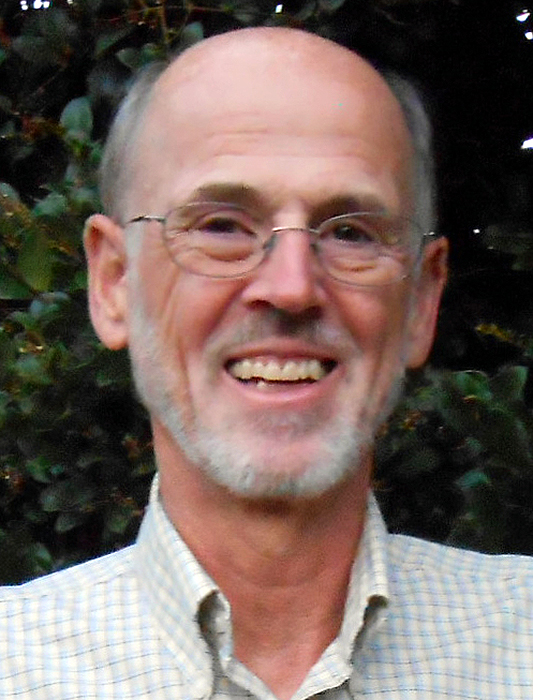
French Wetmore is President of French & Associates, Ltd., a floodplain management consulting firm.
Mr. Wetmore presented “Flood Hazard Mapping – The Basics and the NAI Approach” during ASFPM’s No Adverse Impact Floodplain Management Specialty Course in 2021.
Prior to consulting, French was Chief of Local Floodplain Programs for the Illinois Division of Water Resources and State Flood Insurance Coordinator, 1976 – 1988. French’s State work and consulting projects have focused on assisting communities with their floodplain management and mapping programs. He is the author of many guides for local officials, including the source documents for FEMA’s Floodplain Management Desk Reference (FEMA 480), ASFPM’s No Adverse Impact Toolkit, and the NAI How-to Guide for Hazard Identification and Floodplain Mapping. French served for 16 years on his town’s planning commission, including five years as Chair.
Terri L. Turner, AICP, CFM
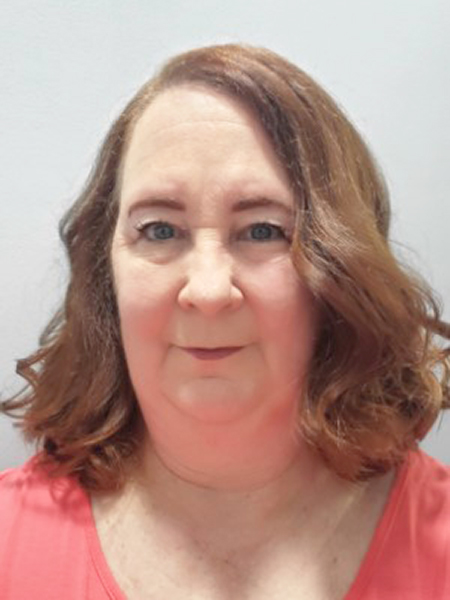
Development Services Administrator / Floodplain Manager / Hazard Mitigation Specialist, Planning and Development Department of Augusta, Georgia.
Mrs. Turner presented “No Adverse Impact (NAI) Planning for your Floodplain Management Program” during ASFPM’s No Adverse Impact Floodplain Management Specialty Course in 2021.
Terri has worked for city and county government for a total of over 25 years, both in South Carolina and in Georgia. Before her government service, she spent 16 years actually designing the same types of projects she now reviews in her role with the City of Augusta. She is the past Association of State Floodplain Managers (ASFPM) Region 4 Director, and currently serves as the ASFPM No Adverse Impact (NAI) Committee Co-Chair. She also serves as an Associate for the ASFPM Foundation. Terri spends most of her free time writing for national publications and traveling across the country as a local government and floodplain management expert and No Adverse Impact SME.
Jerry Murphy, JD, AICP, CFM

Faculty Consultant, Program for Resource Efficient Communities (PREC) at the University of Florida.
Mr. Murphy presented “Legal Foundations for the No Adverse Impacts Approach to Floodplain Stewardship” during ASFPM’s No Adverse Impact Floodplain Management Specialty Course in 2021.
Jerry is a certified floodplain manager, certified urban and regional planner, and legal scholar. His work and research involve land use planning and control law, community-based planning, code and regulation drafting, floodplain management, growth and infrastructure finance, post-disaster redevelopment planning, community resiliency/sustainability. He currently works with local governments through UF to assemble teams of expert faculty, researchers, and student assistants to craft planning approaches and strategies to climate change, extreme weather, sea-level rise and the other challenges facing local governments in the 21st Century.
David Fowler, CFM

Senior Project Manager, Association of State Floodplain Managers (ASFPM)
Mr. Fowler presented “Future Flood Management Challenges: Thinking Outside the Box Culvert” during the Community Planning for Flood Mitigation Specialty Course in 2021.
Dave spent 36 years with the Milwaukee Metropolitan Sewerage District working on water resource and flood management issues before retiring in 2016. Dave is currently working for the Association of State Floodplain Managers (ASFPM) as a Senior Project Manager. He has been active with ASFPM for over 20 years in numerous leadership positions, and in 2016 he was awarded the Louthain Award for Distinguished Service to ASFPM.
Lauren Hutch Williams, Ph.D.

Resilient Coast Program Director, The Nature Conservancy
Mrs. Williams presented “The Nature Conservancy’s Community Rating System (CRS) Explorer Tool and Green Print” during the Community Planning for Flood Mitigation Specialty Course in 2021.
As the Resilient Coast Program Director for The Nature Conservancy in Texas, Lauren Hutch Williams works with scientists, resource managers, policy practitioners, community leaders and others to develop and implement strategies to create a resilient coast for Texas and the Gulf of Mexico. Lauren oversees all aspects of science, strategy, and project implementation for the Texas Chapter’s Resilient Coast Program and provides leadership and support for the Chapter’s conservation planning work, helping to establish overall conservation priorities for the Gulf coast.
Yi Lang Chan, CFM
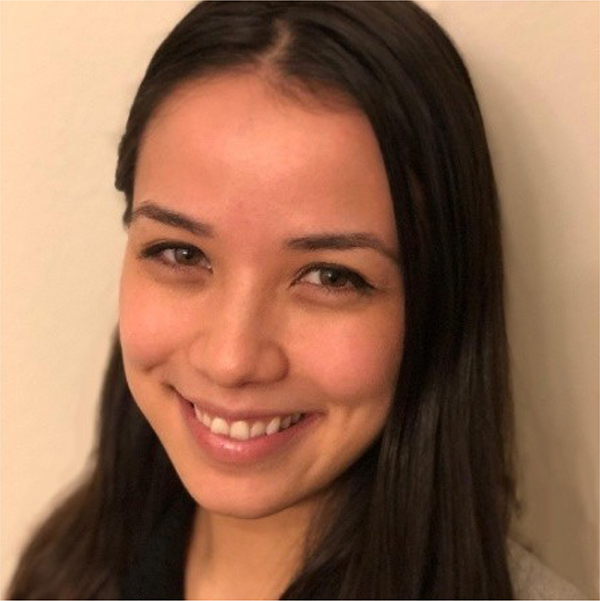
NFIP State Coordinator and Manager, Community Assistance Program, Texas Water Development Board
Ms. Chan presented “State Agency Lunch & Learn and Assistance Programs: Local Benefits of Higher Standards and the CRS Program” during the Community Planning for Flood Mitigation Specialty Course in 2021.
Yi Ling Chan has been with the Texas Water Development Board since 2018, providing floodplain management support, education, and technical assistance to floodplain administrators in Texas. Prior to working in Texas, she was a research assistant at the Louisiana State University Coastal Sustainability Studio, where she conducted research on community well‐being to coastal and inland flooding. She has a M.S. in Geography with a GIS Certificate from Louisiana State University, and a B.S. Mathematics/B.S. Geography from the University of Louisville.
Ataul Hannan, P.E., CFM
Planning Division Director, Harris County Flood Control District
Mr. Hannan presented “Resilience Requires Partnership(s)” during the Community Planning for Flood Mitigation Specialty Course in 2021.
Ataul Hannan, P.E., CFM, is working as the Planning Division Director for Harris County Flood Control District. He brings more than 25 years of experience in watershed management and water resources engineering to the position. He was appointed as Director of Planning Division on April 7, 2015. Prior to joining the District he provided technical support to FEMA’s NFIP and Disaster Relief Program. He was the lead project engineer for Tropical Storm Allison Recovery Project and North Carolina Statewide mapping project. He managed numerous Flood Insurance Studies in many states. Mr. Hannan is the author of more than 100 papers and abstracts on variety of topics. He is registered as a Professional Engineer in the State of Texas and Virginia. He is also a Certified Flood Plain Manager. HCFCD’s Model and Map Management Program, a near real time inundation mapping tool and buyout program policies were developed under Mr. Hannan’s leadership.
Roderick Scott, CFM

Board Chair, Flood Mitigation Industry Association
Mr. Scott presented “Steps to Elevation – Elevation 101” during the Community Planning for Flood Mitigation Specialty Course in 2021.
Rod has over 25 years of contracting experience specializing in flood damage recovery and historic structures. In 2009, he traveled to Louisiana to assist in the start‐up development of a multimillion dollar flood hazard mitigation/elevation company. The company eventually elevated over 1,500 of the over 34,000 homes elevated in Louisiana, following multiple hurricanes in the last ten years. Rod has personally worked on all phases of over 300 flood hazard mitigation/elevation projects and is a historic building specialist. Rod has a private sector consulting company the provides education development programs, project management, assessment and estimating services for flood mitigation projects. In 2014 Rod became a Certified Floodplain Manager ‐ CFM and has conducted flood hazard mitigation outreach programs for the victims of Irma and Harvey. In 2014 Rod won the ASFPM National Flood Proofing Award for the industry supported “Elevation 101” program. In 2018 Rod helped the International Association of Structural Movers publish the “Steps to Elevation – STE” for property owners. In April of 2020 Rod led a team to produce the “Home Raising Academy” a pilot HUD Resiliency project in Norfolk, VA. In 2020 Rod lead a group of private sector companies create the Flood Mitigation Industry Association – 501c3 and is serving as Board Chair.
Timothy J. Trautman, P.E., CFM
Engineering & Mitigation Program Manager, Charlotte-Mecklenburg Storm Water Services, North Carolina
Mr. Trautman presented “Integrating Buyouts into Community Planning” for the Community Planning for Flood Mitigation Online Specialty Course in 2021.
Mr. Trautman is actively involved in national flood policy issues with the Association of State Floodplain Managers (ASFPM). He oversees a $10M annual program that includes water quality and flood mitigation capital improvement projects, local mitigation planning, flood warning, and floodplain map maintenance. He has a BS and ME degree in Civil Engineering from the State University of New York at Buffalo.
Back to Top ↑
